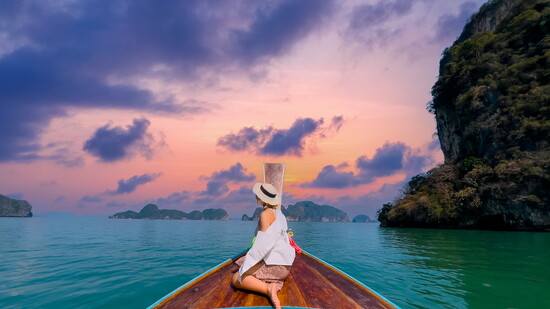Ainsley Durose, a young pastry chef from the US living in Paris, France, beautifully depicts the classical concept of leisure in her short online travel videos filmed just outside of Paris. In one video, she begins her journey with her beautiful, flowing summer dress, swaying softly back and forth in a rhythmic rock while comfortably draping her slight frame, as she boards the train on this day’s outing in the French countryside. As you follow her through the quaint village of Vernon, you realize she is shopping for an al fresco lunch, a picnic. Her first stop is the charcuterie for ham, full of local, fresh meats. Then onto the boulangerie, brimming with fresh baked bread in baskets and on shelves, to purchase a baguette and finally, the pièce de résistance, the fromagerie - a cheese shop with dozens and dozens of local artisan cheeses to crown her ham and baguette with a deliciously soft cheese to complete her meal.
After a short walk over a picturesque bridge, she gracefully billows a small blanket on which to sit for her picnic lunch, assembling her delectable items into a simple sandwich while she gazes peacefully over the meandering river as she enjoys the tastes of France. Upon finishing her lunch, she takes a bus ride to visit the next village, La Roche Guyon, and explores a magnificent, hillside chateau built in the 12th century and renovated in the 18th century. After touring the grand interior, she climbs a hidden passageway of stone stairs to the rooftop, being rewarded with a spectacular view of the Seine River. Her parting comment to her audience is “France is so much more than Paris,” implying that leisure is much more than just amusement or recreation. It is to be a deliberate, intentional time of personal growth and development away from daily work duties to derive genuine fulfillment through the virtue of human agency.
In both his Nicomachean Ethics and Politics, Aristotle wrote extensively on the importance of leisure to the growth and development of one’s self. He argued that living well means the quality of our leisure matters more than our work. He stressed that people tend to waste their leisure time if they have not been educated on how to spend it constructively. His example of Sparta, known for its military prowess and disciplined society, illustrated how it fell drastically short as a nation in times of peace because it only knew how to flourish in times of war. The Spartans were well trained for combat but not educated on how to live in “idleness”.
To further explain the importance of leisure to the human condition, Aristotle delineates its practice into 3 separate categories: amusement, recreation and contemplation. The purpose of leisure is to help one find a life of “flourishing happiness”. Aristotle asserts that all 3 have their place, when used properly, but only the practice of contemplation can help one achieve “eudaimonia”, a state of happiness realized only through the consistent exercise of virtue and the pursuit of a meaningful life.
Amusement is to be used the least as a “recovery from work” moment of leisure such as stopping for a beer or glass of wine with a friend after work to relax. Recreation is active recovery through activities, like fishing or golf, and utilizes leisure differently that can be enjoyed with or without others. In contrast, contemplation is a deliberate, thought-provoking internal process to cultivate a life of meaning and purpose. A time to look forward while reflecting on where you have been. It is a time to develop character and reason, to further your intellect in order to make sound judgments and better choices. It is how we become rational, thoughtful and wise by reading, learning new skills to enhance creativity, building patience, experiencing new sights, sounds, smells and tastes to broaden and heighten our sensory experience of the world around us.
Since Aristotle, other philosophers over the centuries have echoed his passionate quest for living the best life-We must be deliberate and intentional with all of our time. From Nietzsche to Goethe’s Faust, all recognize and understand that the active striving and engagement with the world, even with its imperfections and temptations, are essential for human fulfillment. Laziness has no place in a fulfilling life. Even in our own Declaration of Independence, the founding fathers enshrined our inalienable right to “life, liberty and the pursuit of happiness”.
So, how do we as Americans learn to appropriately leisure? To begin, we can follow the European's example. In Spain, they practice “sobremesa”, the art of talking for hours after eating. To the average American, leisure is usually considered more of a recovery time from work. Work is the epicenter of our lives; therefore, we must educate ourselves, to redefine who we are and can be.
In the 2006 film, The Pursuit of Happiness, Will Smith’s character recognized that work was only a means to an end and not his identity when he said, “The world is your oyster. It’s up to you to find the pearls”. What pearls of wisdom are you seeking and practicing to live your best life? Like Ainsley Durose, when you explore, you may find so much more.
